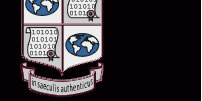| |
Methodological Principles
The InterPARES 3 Project is an international, multidisciplinary collaboration that is applying a multi-method approach to the development of practices, processes and tools that will help in the securing of a protected and lasting environment for the digital records produced by low resources archives.
Guiding Methodological Principles
- Interdisciplinarity, Multidisciplinarity and Transdisciplinarity
The project is interdisciplinary in the measure in which its goal and objectives can only be achieved through the contribution of several disciplines, integrating methodologies, concepts, principles, and techniques from a variety of fields as needed. This process is very different from the multidisciplinary one, which tends to examine the same problem in the context of each separate discipline and to solve it within such discipline, without any integration of theory or methods. Then the results are compared and the best solutions adopted. In contrast, transdisciplinarity is multireferential and multidimensional. Whereas interdisciplinarity involves the transfer of one or more methods or ideas from a discipline to another, and multidisciplinarity involves the analysis of the same object by many disciplines, transdisciplinarity, as the prefix "trans" indicates, involves thinking at the same time within, across and outside each discipline, and beyond all disciplines. Its purpose is to gain an understanding of present reality, one imperative of which is the unity of knowledge. “Rigor, openness, and tolerance are the fundamental characteristics of the transdisciplinary attitude and vision. Rigor in argument, taking into account all existing data, is the best defense against possible distortions. Openness involves an acceptance of the unknown, the unexpected and the unforeseeable. Tolerance implies acknowledging the right to ideas and truths opposed to our own.”
- Transferability
The ultimate goal of the project is archival in nature, in that it is concerned with the development of trusted record making and keeping systems and of preservation systems that ensure the authenticity of the records under examination over the long term. This implies that the work carried out throughout the project in the various disciplinary areas must be constantly translated in archival terms and linked to archival concepts, which are the foundation upon which the systems intended to protect the records are designed. However, upon completion of the research, the archival systems need to be made accessible and comprehensible to records creators, organizations and institutions and disciplinary researchers. In other words, the research outcomes must be translated back into the language and concepts of each discipline that need to make use of them.
- Open Inquiry
InterPARES 3 espouses no epistemological perspective or intellectual definitions a priori. Instead, researchers in each case or general study will identify the perspective(s), research design, and methods that they believe to be most appropriate to their inquiry. In fact, InterPARES 3 is conceived to work as a “layered knowledge” environment, in the sense that some of the research work will build upon knowledge developed in the course of InterPARES; some will take knowledge of similar issues developed in other research projects and in other areas of endeavour and bring it to bear on records creation and preservation; and some will explore new issues and study entities never examined before and develop entirely new knowledge.
- Multi-method Design
Although the overall methodological approach is action research, each case study and general study will be carried out using the method and the tools that the dedicated investigating team considers the most appropriate for it. The methods used are surveys, case studies, modeling, prototyping, diplomatic and archival analysis, and text analysis. The research is to be guided by the research questions and by instruments developed by International TEAM.
|



